Prøve GULL - Gratis
Safety Measures
Practical Poultry
|March 2017
Andy Marshall looks into the practical aspects of the AI-related Protection Zone, and explains the implications for back garden hen keepers and their birds.

I was horrified, while enjoying an afternoon walk with the family over the Christmas holiday, to pass an orchard full of free-range ducks and chickens. I just couldn’t believe that there were still poultry keepers around who weren’t aware of the Defra guidance concerning avian influenza, and the risks its continuing spread poses to chicken enthusiasts across the UK.
In my view it’s simply not fair on the sensible majority who are following the official advice, to be put at risk by the unthinking minority. For many keepers it’s been far from easy to comply with the Protection Zone guidance. Yet most owners are acting responsibly, and doing their very best to minimise the impact of this serious disease. Taking no action and simply ignoring the official advice is just plain unacceptable.

Practical measures
The reality is that avian influenza has the potential to affect all chicken keepers in the UK, so it’s very important that everyone makes an effort to minimise the risk of this dangerous and destructive disease spreading.
For the hobby keeper, this essentially means that all back garden chickens need to be housed and, in so doing, prevented from any sort of free-range activity, or using an open run. Covering the run with strawberry netting will keep out wild birds but won’t, of course, prevent the droppings falling down through it, and on to the run floor below.
Chicken house and run combinations can work if the run roof is covered with a solid material to prevent the droppings landing in the run. Black plastic sheeting is a cheap way of temporarily keeping the run clean.
Denne historien er fra March 2017-utgaven av Practical Poultry.
Abonner på Magzter GOLD for å få tilgang til tusenvis av kuraterte premiumhistorier og over 9000 magasiner og aviser.
Allerede abonnent? Logg på
FLERE HISTORIER FRA Practical Poultry
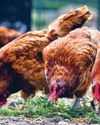
Practical Poultry
Growing food for Chickens
Mary Larham explores some crops to grow on your holding…
5 mins
January - February 2020
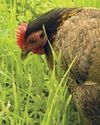
Practical Poultry
Poultry in the garden – the truth!
Jo-Jane Buxton shares her experiences
2 mins
January - February 2020
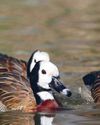
Practical Poultry
The British Waterfowl Association
Which came first, the goose or the egg?
3 mins
January - February 2020
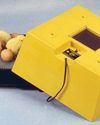
Practical Poultry
WHY FIT A FAN IN AN INCUBATOR?
Brinsea Products, the Incubation Specialists explain the difference between still air and forced draught
8 mins
January - February 2020
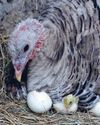
Practical Poultry
Incubating turkey eggs
Janice Houghton-Wallace looks at broody turkeys and artificial incubation
4 mins
January - February 2020
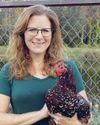
Practical Poultry
Chicken nesting box herbs
Diana Clauss owns The Blue Feather Farm, in St Cloud, Florida, home to chickens, ducks, goats, and Anatolian Shepherd dogs.
4 mins
January - February 2020
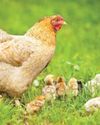
Practical Poultry
Incubate in January?
Jessica Wombwell says plan the breeding
5 mins
January - February 2020
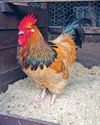
Practical Poultry
Andy's DIARY
Andy emphases the importance of keeping out damp and wet but allowing ventilation even in cold weather
5 mins
January - February 2020
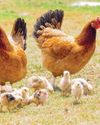
Practical Poultry
Feeding for Breeding
It may be winter, but as Joanna Palmer, nutritionist for Smallholder Range explains, now’s the time to get your flock in tiptop shape and plan ahead for a successful breeding season next spring.
3 mins
January - February 2020
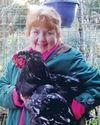
Practical Poultry
A chick named Cuckoo raised by a duck!
Chris Hammacott and her husband live on a small croft in the Outer Hebrides, they keep a ‘no kill’ flock or rare and rescue sheep which they use to spin and weave rugs. They also share the 8 acres with hens, ducks, cats and 9 rescue pugs.
7 mins
January - February 2020
Translate
Change font size

